25+ Of the Best Books on the American Revolution
The American Revolution is a fascinating historical event that involved intense struggles, wars, and incredible effort. A struggle of not just the physical but of ideas, loyalties, and endurance – a fight that changed the world. A saga that stretches from the standoffs of Lexington and Concord to the euphoric surrender at Yorktown is filled with stirring tales of heroism, tales of treachery and defeat, fires of political passion, and quieter sparks of day-to-day life and of the private hopes of individuals.
As John Adams put it, “The Revolution was in the minds and hearts of the people.” It is in all its myriad forms and consequences that the history of the American Revolution is every bit as much a story of personal transformation as it is of military conquest.
To read some of the best-researched books on the American Revolution is to experience the history of the time in high definition. From soldiers and statesmen, to Loyalists and fence-sitters – and in between battles, as well as during – these books seek to make sense of the complex causes and consequences that ultimately pushed the thirteen British Colonies in North America to do the unprecedented and establish the United States of America.
25+ of the Best Books on the American Revolution

1. 1776 – David McCullough
(Non-Fiction, Key Year in the Revolution)

Topic: The pivotal year when America’s fight for independence could have easily ended in failure.
Summary: McCullough tells the story of the military battles and leadership issues of the year 1776, with an emphasis on Washington’s efforts to keep the Continental Army together. Personal stories of soldiers and commanders are told, showing uncertainty, endurance, and tenuous hope for victory. The book is a large-scale history and a human-interest tale of the struggle for American independence.
2. Washington’s Crossing – David Hackett Fischer
(Non-Fiction, Trenton and Princeton Campaigns)

Topic: Washington’s daring crossing of the Delaware River and the victories at Trenton and Princeton.
Summary: Fischer provides a specific, motivating narrative of the winter 1776–1777 strategic reversal. He focuses on Washington’s command and the diversity of the Continental Army, including foreign immigrants and African Americans. The book also addresses how the campaign reinvigorated the revolutionary effort when failure appeared certain.
3. Founding Brothers: The Revolutionary Generation – Joseph J. Ellis
(Non-Fiction, Post-Revolution Political Era)

Topic: The relationships and political maneuvers among America’s founding leaders.
Summary: Ellis chronicles significant events in the young republic such as the Burr-Hamilton duel, Washington’s Farewell Address, and Jefferson’s dinner table bargain. He uses personal narratives to show the revolutionary generation’s compromises between their ideals and governing realities, their harmony and dissonance.eration.
4. The Glorious Cause – Robert Middlekauff
(Non-Fiction, Comprehensive History)

Topic: A complete narrative of the American Revolution from its political origins to final victory.
Summary: Middlekauff’s book is part of the Oxford History of the United States series. It covers the ideological, political, and military origins of the conflict which culminated in the independence of the United States. By synthesizing the British and colonial points of view, he demonstrates that ignorance and pride on both sides eventually caused the conflagration to turn into war. Middlekauff’s well-balanced and scholarly account is thorough but accessible.
5. Almost A Miracle: The American Victory in the War of Independence – John Ferling
(Non-Fiction, Full War Overview)

Topic: The improbable American victory against the world’s most powerful military.
Summary: Ferling’s book covers the full span of the Revolutionary War. It focuses on military operations, logistics, and the personalities of the leaders. Ferling argues that the British were much closer to winning the war than previously thought, and that diplomacy, foreign aid, and stubbornness were as important as battlefield victories. The book is part detailed narrative of fighting on the battlefield, and part a story of the war for European support.
6. American Revolutions: A Continental History, 1750–1804 – Alan Taylor
(Non-Fiction, Broad Context of the Revolution)

Topic: The Revolution as a continental and global event.
Summary: Taylor views the Revolution in a much broader context than a revolt of British colonists. It was part of a fundamental transformation of North America by Native nations, African Americans, and rival empires. The author dispels many myths and shows the results of the war were often chaotic and contradictory. The book reinterprets the Revolution as a conflict with many more winners and losers.
7. Liberty’s Exiles: American Loyalists in the Revolutionary World – Maya Jasanoff
(Non-Fiction, Loyalist Experience)

Topic: The fate of Loyalists after the Revolution.
Summary: Jasanoff tracks the trajectories of Loyalists who left the United States, journeying to Canada, the Caribbean, Africa and Britain. She details a worldwide diaspora forged in the crucible of displacement and adaptation. The book offers nuance to the narrative of the Revolution by bringing voice to the vanquished.e.
8. The British Are Coming: The War for America, Lexington to Princeton, 1775–1777 – Rick Atkinson
(Non-Fiction, First Volume of a Trilogy)

Topic: The early years of the Revolutionary War.
Summary: Atkinson’s narrative talents are now applied to the first campaigns of the Revolution, where he weaves political, military, and civilian threads together. He conveys the confusion, optimism, and violence of war’s early days, from Bunker Hill to Washington’s New Jersey counterattacks. The book contains vivid character portraits and tactical details.
9. Bunker Hill: A City, A Siege, A Revolution – Nathaniel Philbrick
(Non-Fiction, Boston and Early War)

Topic: The Siege of Boston and the Battle of Bunker Hill.
Summary: Philbrick recreates the events which made Boston the center of revolutionary activity. He profiles the major players on both sides and how personal animosities and political blunders led to the battle. It is both a compelling military chronicle and a social history of an embattled city.
10. Revolutionary Summer: The Birth of American Independence – Joseph J. Ellis
(Non-Fiction, Summer of 1776)

Topic: The intense months surrounding the Declaration of Independence.
Summary: Ellis chronicles the relationship between warfare and politics during mid-1776. He details the challenge of balancing swift action with strong union. The narrative emphasizes the connection between Congress’s actions and events on the battlefield.
11. A People’s History of the American Revolution – Ray Raphael
(Non-Fiction, Social History)

Topic: The Revolution from the perspective of ordinary people.
Summary: Raphael turns from generals and statesmen to farmers, slaves, women, and Native Americans, using diaries, letters, and other accounts to show a more diverse and complicated war. The book dispels heroic myths but demonstrates how independence was won in the day-to-day lives of these people and in the minutiae of the conflict.
12. The Men Who Lost America – Andrew Jackson O’Shaughnessy
(Non-Fiction, British Leadership)

Topic: The British political and military leaders who failed to keep the colonies.
Summary: Ten figures are given profiles by O’Shaughnessy, ranging from King George III, his cabinet, parliament, and generals on the battlefield. The main thrust of the book is to illustrate their actions, as well as their missteps in the attempt to retain the colonies. Avoiding caricature, these are painted as able men who tried to do their best in impossible circumstances. The result is that the British loss is shown as often due to circumstances as to culpable errors.
13. Valiant Ambition – Nathaniel Philbrick
(Non-Fiction, Benedict Arnold and George Washington)

Topic: The intertwined fates of Washington and Arnold during the war.
Summary: Philbrick charts Arnold’s often unexpected transformation from a dashing patriot hero into the reviled head of the British conspiracy, as well as Washington’s improbable, steely determination to keep his army intact. The Deadly Cleverness of the People captures the tenuousness of the Revolution in its middle stages, telling a tale of loyalties, leadership, and ambitions pushed to the breaking point.
14. Patriots: The Men Who Started the American Revolution – A.J. Langguth
(Non-Fiction, Revolutionary Leaders)

Topic: The key figures who drove the colonies toward independence.
Summary: Langguth’s history begins with a political origin story of the Revolution, with character sketches of Adams, Franklin, Jefferson, and others. He traces their movements from the first stirrings of protest to the Treaty of Paris. The book is a mixture of biography and breathless chronicle.
15. Victory at Yorktown – Richard M. Ketchum
(Non-Fiction, Final Campaign)

Topic: The decisive Yorktown campaign of 1781.
Summary: Ketchum describes the Franco-American alliance that resulted in the surrender of Cornwallis. He conveys the strategic maneuvering, the siege warfare, and the politics that surrounded this victory. The book ends with the end of the war and the prospect of peace.
16. The War for Independence – Samuel B. Griffith II
(Non-Fiction, Military Overview)

Topic: A comprehensive account of the American Revolutionary War’s battles and campaigns.
Summary: Griffith is a retired Marine Corps general, and as such is well qualified to write about military strategy and tactics. This book is a complete analysis of both the large scale set piece battles as well as the many smaller irregular actions that took place during the war. The book presents the military side of the war in an easily understood, well organized manner.
17. Liberty’s Daughters – Mary Beth Norton
(Non-Fiction, Women in the Revolution)

Topic: The role of women during the American Revolution.
Summary: Norton surveys women’s contributions and experiences, as camp followers, spies, and those who managed farms and businesses when their husbands were away. She also considers how the war altered women’s legal and social standing. The book is a must for anyone who wants a fuller understanding of how the war impacted half the population.n half the population.
18. The Road to Guilford Courthouse – John Buchanan
(Non-Fiction, Southern Campaign)

Topic: The fierce fighting in the Carolinas leading up to Guilford Courthouse.
Summary: Buchanan’s account dramatizes the maneuver warfare between Greene and Cornwallis. He details bloody skirmishes, divided allegiances, and rough southern terrain. The book illustrates how this campaign sapped British will.
19. Perilous Fight – Stephen Budiansky
(Non-Fiction, Naval History)

Topic: The American Revolution at sea.
Summary: Budiansky recounts the tale of privateers, ships of the Continental Navy, and the French fleet’s essential part. He conveys the peril, improvisation, and sheer daring of naval combat. This book reclaims the maritime aspect of the Revolution’s story.
20. The Indispensable Man – James Thomas Flexner
(Non-Fiction, George Washington Biography)

Topic: Washington’s leadership during the Revolution.
Summary: Flexner depicts Washington as a deeply flawed and larger-than-life man, the only individual who could keep the teetering cause afloat. He assesses Washington’s judgment, tenacity, and integrity. The book is an insightful, admiring portrait of the commander-in-chief.
21. The Perils of Peace – Thomas Fleming
(Non-Fiction, War’s End and Treaty of Paris)

Topic: The uneasy period between Yorktown and the signing of peace.
Summary: Fleming demonstrates that even the victory at Yorktown did not immediately bring the war to an end. He chronicles the nail-biting diplomacy, near-mutinies and economic crises of 1781–1783, and shows just how tenuous the new nation was before independence was finally secured.
22. The Battle for the Fourteenth Colony – Mark R. Anderson
(Non-Fiction, Canada Campaign)

Topic: The failed American attempt to bring Canada into the Revolution.
Summary: Anderson narrates the events of the invasion of Quebec, the privations of Arnold’s and Montgomery’s men, and the campaign’s dismal failure. He covers the strategic value of Canada and the results of its continued loyalty. The story is a mix of military and political background.
23. Thomas Paine’s Common Sense – Thomas Paine
(Non-Fiction, Political Pamphlet)

Topic: The pamphlet that galvanized American support for independence.
Summary: Paine’s clear writing against monarchy and for republican government was read by many. It helped to turn public opinion in favor of breaking with Britain. Even now, it is considered one of the most incisive political works ever written.
24. Chains – Laurie Halse Anderson
(Fiction, Young Adult Historical Novel)

Topic: An enslaved girl’s struggle for freedom during the Revolution.
Summary: Told from the perspective of a young slave girl, Isabel, living in New York, Anderson weaves the incongruities of a nation fighting for freedom while holding on to the institution of slavery. The book is part true historical events and part page-turning personal narrative. It’s both a great introduction for young readers and a deeply moving story for all ages.
25. Johnny Tremain – Esther Forbes
(Fiction, Historical Novel)

Topic: A young apprentice’s coming-of-age in Revolutionary Boston.
Summary: Johnny, a silversmith’s apprentice, joins the Sons of Liberty, and finds himself in the thick of the events leading to Revolution. Readers feel the anticipation, peril, and wonder of a city on the verge of war in this enduring story, loved by generations.
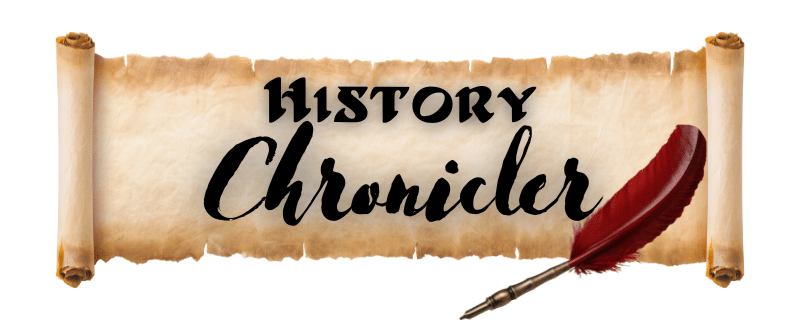






















































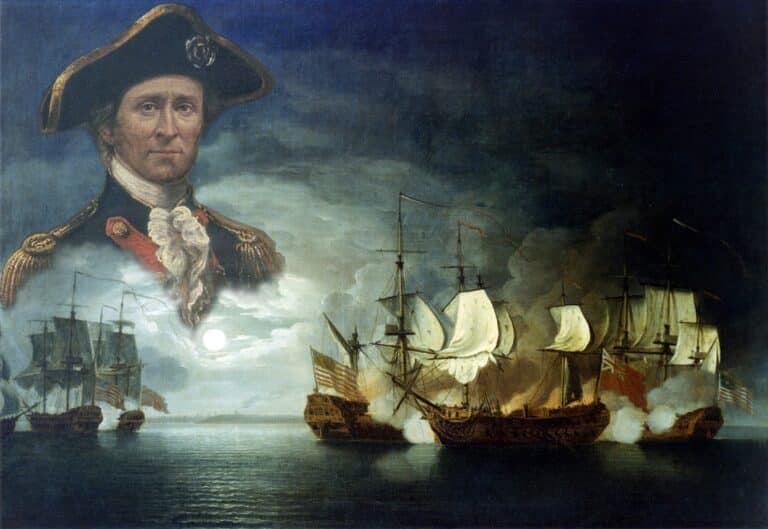
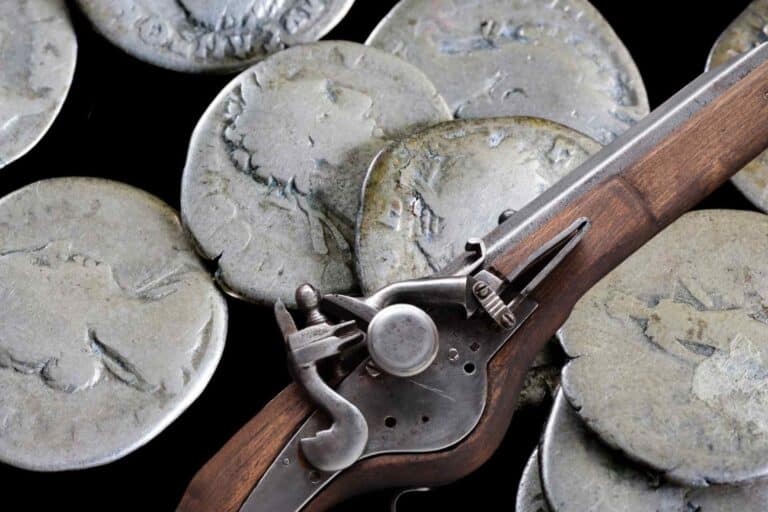
![[Video] Women of the American Revolution Part 2](https://historychronicler.com/wp-content/uploads/2025/04/Screenshot-2025-04-12-at-2.54.41 PM.jpg)
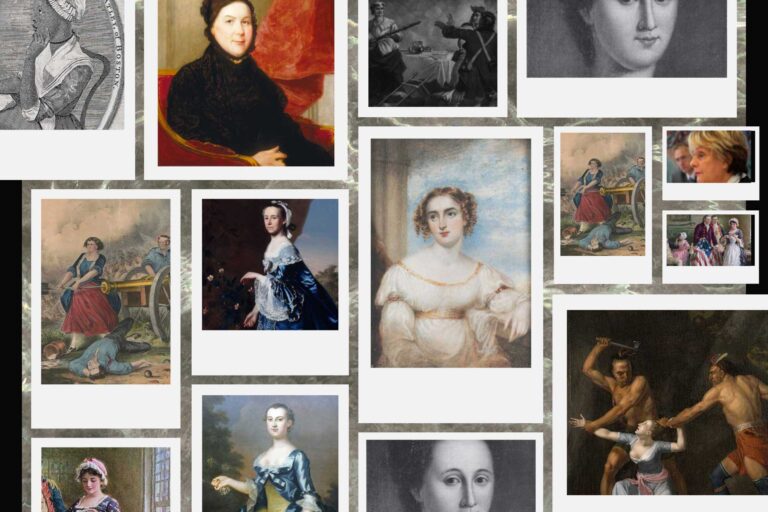
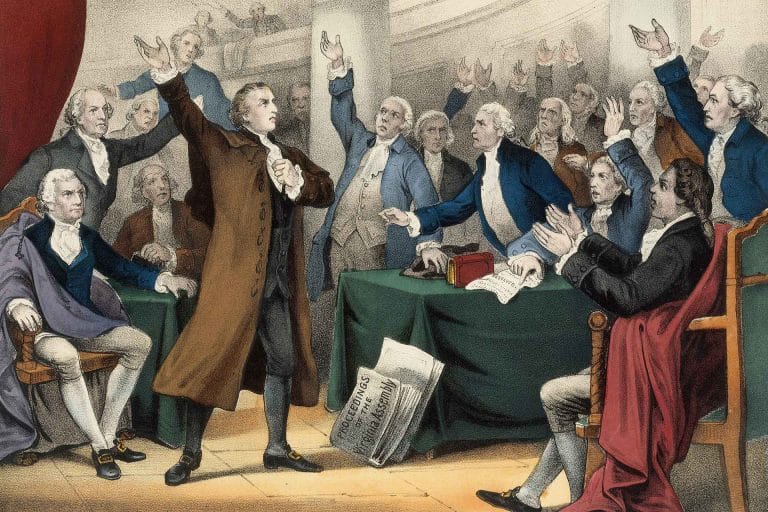
Interesting list highlighting your opinion on top 25 books. There are hundreds of stories about the Revolutionary War that took place in all 13 colonies & territories across North America and across the Atlantic Ocean & Caribbean. A good list to start reading about the forming of our country. A period I maintain that extends from the settling of French & Indian War thru the Presidency of John Quincy Adams
Thanks so much for reading and commenting. You are correct- here are countless stories throughout the 13 Colonies. We hope we highlighted some of your favorites.